The hundreds of students who gathered for Saturday’s Maine FIRST Lego League State Championship at the Augusta Civic Center are taking the familiar plastic bricks to whole new levels.
Organized by Maine Robotics, the championship drew 60 teams of fourth- through ninth-graders from across the state who competed in a variety of events meant to build problem-solving skills, foster teamwork and bolster creativity. A mixture of school and community-based teams, the Maine competition involved creating and programming Lego robots to carry out specific tasks in 2½ minutes of sheer drama.
“We have a few programs that work,” said 13-year-old Brandon Reny, an eighth-grader at Winslow Junior High School. “There’s a lot of tweaking and fine-tuning that goes into programming.”
Winslow arrived with two teams, Reny’s The Excelerators and Raider Robotics. The program is part of the school’s science, technology, engineering and mathematics offerings.
“It’s a model for kids that really does work, and it’s all transferable skills,” said Chuck Jacobs, who coaches Winslow’s teams with Ginny Brackett.
In the competition’s timed portion, teams had to program their Lego robots to collect trash, made of smaller Lego creations, and take it to a specific area on the table. The robots, which must work independently during the competition, use sensors, including touch, light and ultrasound, to stay on course and avoid obstacles.
“They program their robots to do the specific tasks,” Brackett said.
The second part of the competition required the teams to identify a trash problem in their communities and develop a plan for addressing it. In Winslow that meant finding a way to reduce the amount of trash on the ground after sporting events. Brackett said the students found a study, conducted by the Disney corporation, that found people will walk only 29 steps to throw something away. The robotics team worked with the music boosters to add trash cans to events.
The competition not only involved identifying and solving a problem, but also required the students to work with people outside the school.
“It’s a pretty good dual piece for them,” Brackett said. “It’s a very good, well-rounded project for these kids.”
But make no mistake, it’s also more than a little fun, said 14-year-old Caleb Welsh, an eighth-grader at Winslow. He began playing with Legos as a young boy and never really stopped. The robotics team allows him to indulge in the hobby on a higher level.
“It’s a fun program,” Welsh said. “We get to play with Legos and get them to do whatever we want them to do.”
In the midst of that play, however, students are presented with difficult challenges that would be familiar to anyone who works in the fields of engineering or computer programming.
“One little bump on the tracks and it will throw the robot off and it won’t work,” Reny said.
The students have to work together to come up with not only the best solution to correct problems, but to develop a strategy that they think is most likely to give them the most overall points. Jan Roberts of Maine Robotics said teams can be quick but inefficient or work at a slow pace but make very few mistakes. The idea is to strike a balance. Roberts said all of the teams are given the same materials to develop their machines. The rest is up to them.
“It’s all creativity,” he said. “You have to find your sweet spot. There’s not limit to what the kids can do.”
The FIRST LEGO League is a partnership between the Lego Group and FIRST (For Inspiration and Recognition of Science and Technology). American inventor Dean Kamen founded the nonprofit in 1989 to “inspire interest in science and engineering” in young people.
There has been a growing interest in robotics programs since the first state championship was held in 2000. There were fewer than 100 students that first year, but this year there are more than 650, Roberts said. There are now 89 teams statewide, which means that teams have to get through qualifying competitions to get through the state championship.
“It’s grown every year,” Roberts said, adding that robotics programs appeal equally to boys and girls. “It’s such a great program. No one is afraid of Legos.”
Maine Robotics launched in 2004 to provide young people STEM and computer programming opportunities. Its events include the state championships in the fall and the Maine Robot Track Meet in the spring, as well as summer robotics camps and teacher workshops.
“This is the workforce of the future,” Roberts said. “These are the workers in the new Maine economy.”
Roberts said students in the robotics programs tend to go on to the most competitive colleges and universities, and many of them already will have worked with the programs being used there.
“It teaches them how to solve problems however they think is best,” Roberts said. “It teaches them how to fail, but then move on.”
The benefits were so obvious to Windsor’s Michelle Bonner when she volunteered at the championship a few years ago that she decided to start her own community-based club made up of friends and family. The members of her team, Rip Roarin’ Robotics, are all in fourth through sixth grade at Windsor Elementary School.
“I really wanted them to be involved,” Bonner said. “I think it hits all aspects of what they need to learn. It will be good building blocks for them.”
For more information, or to find or start a team, log on to mainerobotics.org.
Send questions/comments to the editors.

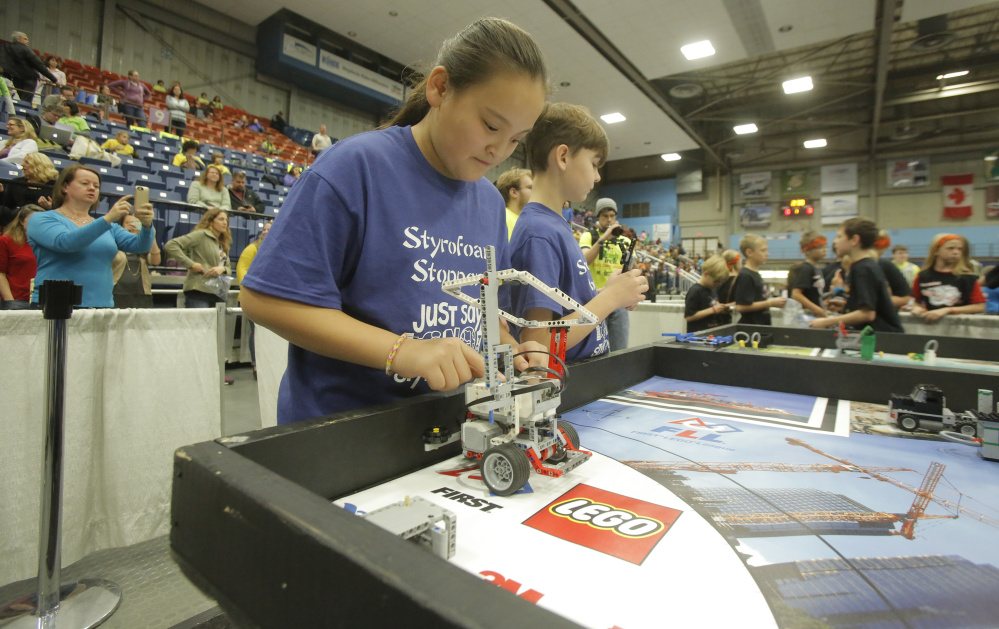
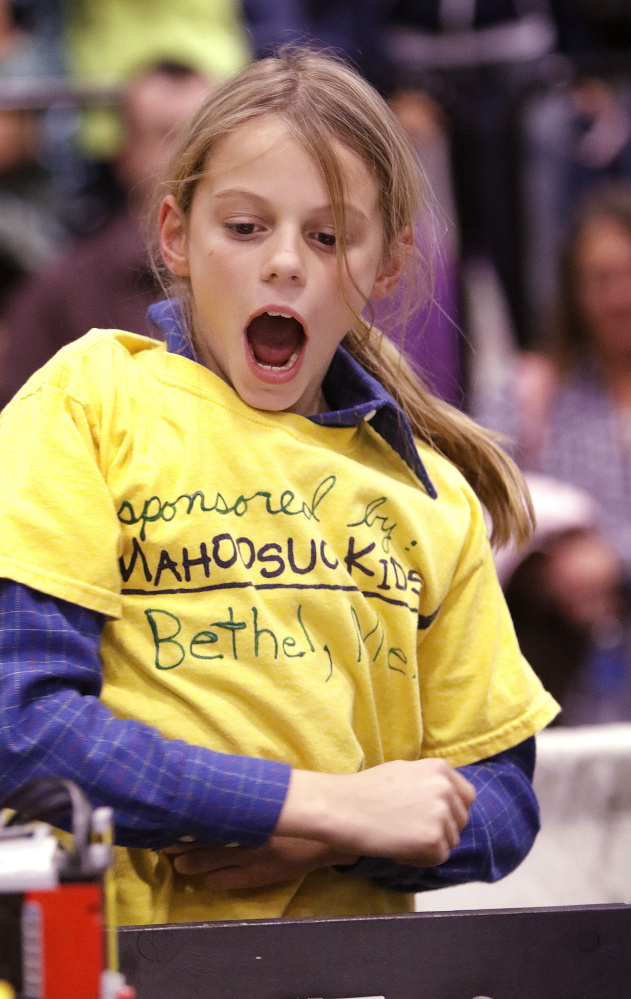
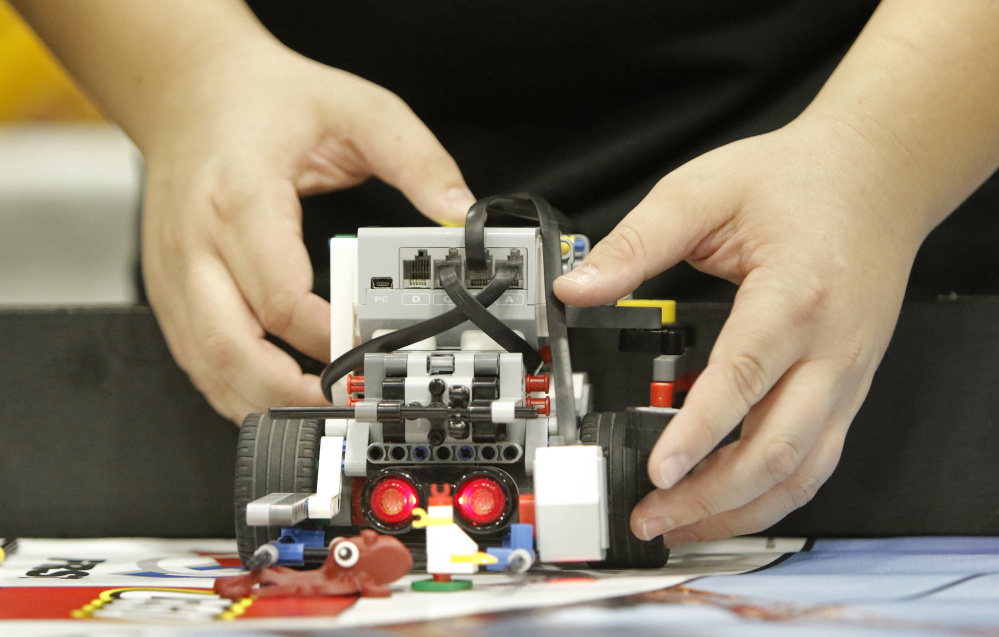
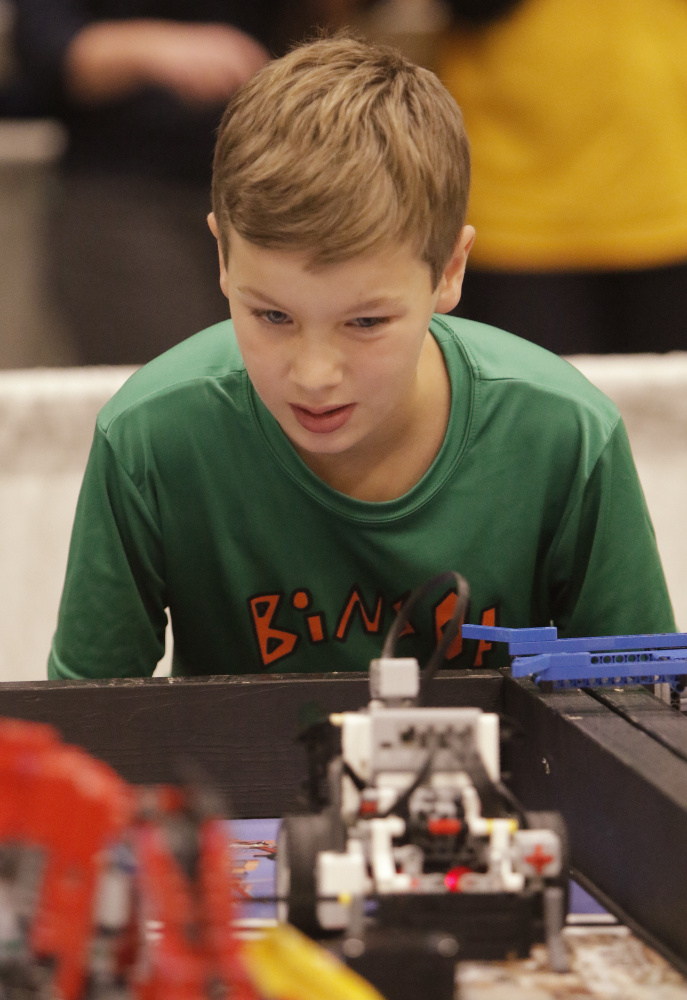
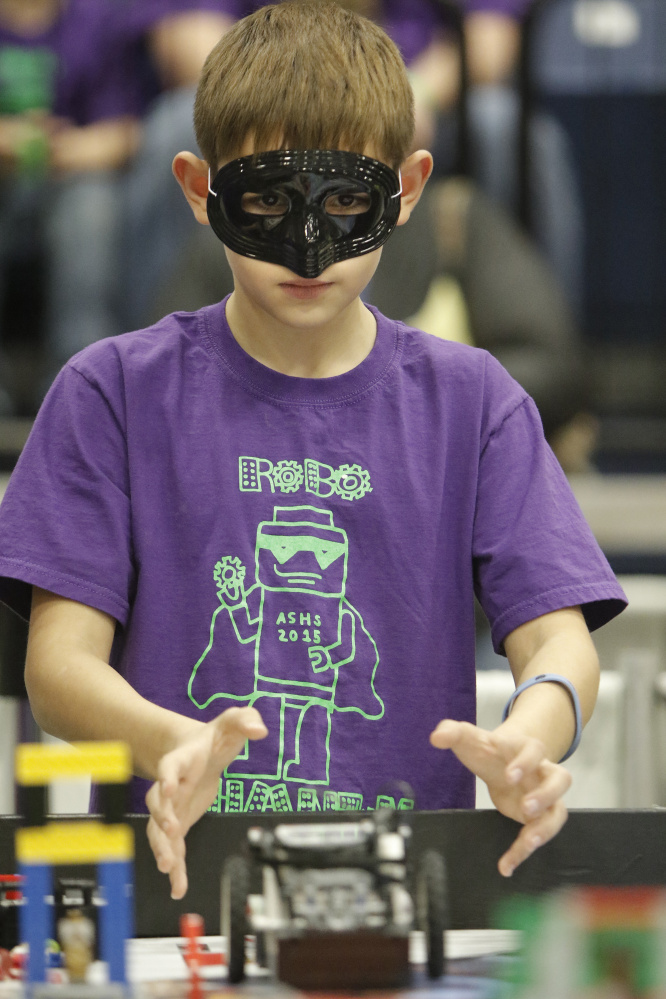
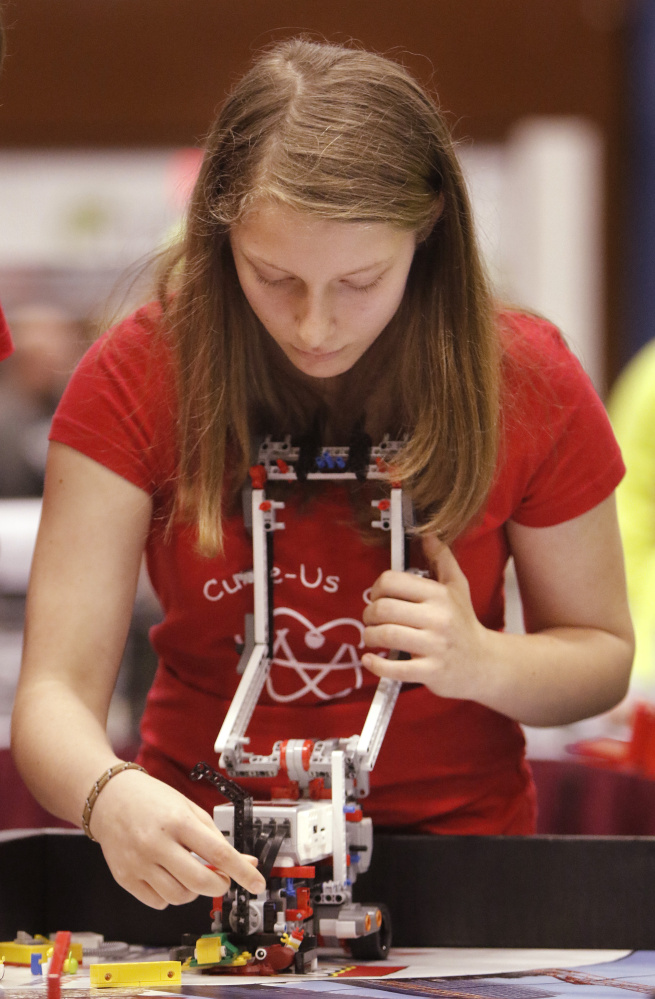

Success. Please wait for the page to reload. If the page does not reload within 5 seconds, please refresh the page.
Enter your email and password to access comments.
Hi, to comment on stories you must . This profile is in addition to your subscription and website login.
Already have a commenting profile? .
Invalid username/password.
Please check your email to confirm and complete your registration.
Only subscribers are eligible to post comments. Please subscribe or login first for digital access. Here’s why.
Use the form below to reset your password. When you've submitted your account email, we will send an email with a reset code.